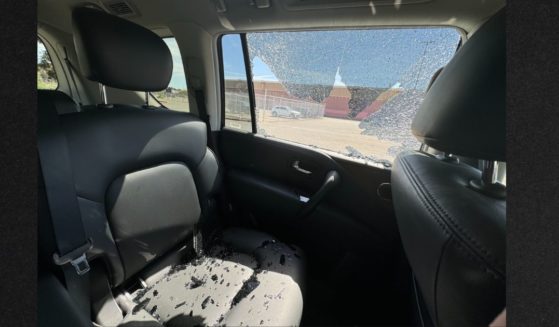Opinion: The Next Congress Should Clean Up the Criminal Code
Have you ever asked yourself how many federal criminal laws there are on the books in this country?
Perhaps not, as that might be a question only criminal law scholars and lawyers ask themselves.
But it is an interesting inquiry because nobody knows the answer.
That’s right. No one — not even the federal government — is certain of exactly how many federal criminal laws are currently on the books, but some rough estimates have concluded that there are more than 5,000 criminal laws scattered through the U.S. Code.
That’s a problem.
First, it’s a problem because, “An elementary rule of constitutional law is that government must afford the public fair notice of the conduct defined as criminal so that the average person, without resort to legal advice, can comply with the law.”
How can the federal government possibly give the average person fair notice of the law if the government itself doesn’t know what laws exist?
Second, as a societal issue, the vast — yet unknown — number of federal criminal laws in our country is a problem because of the phenomenon of overcriminalization.
Overcriminalization is “the overuse and abuse of criminal law to address every social problem and punish every mistake.”
Heritage scholars, for many years, have explained how and why overcriminalization is antithetical to the rule of law and a free society.
This problem isn’t going away.
If anything, it’s getting worse: Congress continues to pass more criminal laws than it repeals. That’s not to say that some in Congress don’t take overcriminalization seriously.
In late October, Rep. Steve Chabot, R-Ohio, introduced the Clean Up the Code Act of 2018 (H.R. 7093) to the House of Representatives.
Chabot’s bill would repeal nine criminal laws from the U.S. Code.
While there are many more than nine laws that should be repealed, a brief look at some of these laws reveals why they are deserving of repeal.
Take, for example, 18 U.S.C. § 711, which makes it a crime for an unauthorized individual to use the “Smokey Bear” character for profit. For those who break this law, they are subject to a fine, six months in jail, or both.
Take another, like 18 U.S.C. § 715.
Under that federal law, anyone who uses the Department of Interior’s “Golden Eagle Insignia” (the official symbol for federal recreation fee areas) for profit faces a fine, six months in jail, or both.
The federal government understandably has an interest in preventing the sale and distribution of nonofficial government merchandise for profit, but is it absolutely necessary for the government to punish such actions with a criminal conviction and possible imprisonment?
The answer, quite simply, is no.
Ordinarily, two private parties who are at odds over the unlawful distribution of each other’s merchandise would settle the matter through a civil lawsuit.
The federal government could do that, too — just ask the Justice Department’s Civil Division.
Let’s take one more, 18 U.S.C. § 46.
That federal law makes it a crime to transport water hyacinths — a genus of plant that grows in shallow water and streams, and on lakeshores. Once again, those convicted of breaking this law face a fine and up to six months in jail.
This law is very similar to the Lacey Act, which makes it a federal crime to import plants and animals into the United States if doing so violates the laws of the countries from whence the plants and animals are exported.
A violation of the Lacey Act is also punishable by imprisonment.
The Lacey Act and the prohibition on transporting water hyacinths were originally enacted to protect wildlife and the environment. But does transporting a water hyacinth warrant time in jail? Most Americans would probably say “no.”
The intentional destruction of a forest is one thing, but consider the case of Gibson Guitar Co.
Gibson imported wood for its guitar frets from India and Madagascar, but exporting it was against the laws of those countries. As a consequence, Gibson’s offices were raided in 2011 by federal agents, and the company decided to enter into a deferred prosecution agreement with the Justice Department to resolve the criminal matters.
While no Gibson employees were imprisoned, the company was forced to pay a fine to a government-backed environmental organization as punishment for its actions.
The run-ins by Gibson and others with the Lacey Act are prime examples of the overcriminalization problem. The Clean Up the Code Act of 2018 would not repeal the Lacey Act, but it would be a step in the right direction to address the overcriminalization problem.
Yes, a more comprehensive review and repeal of unnecessary laws in the federal criminal code is the ideal solution, but even a piecemeal approach like the Clean Up the Code Act of 2018 is an effective starting point.
At the very least, it would signal to the American people that Congress takes overcriminalization seriously.
Unfortunately, the 115th Congress is unlikely to pass the bill, as there are simply not enough days left on the congressional calendar to do so.
But the 116th Congress will convene next month, and the opportunity for the new Congress to address this problem will be as ripe as it has ever been.
Jonathan Zalewski is a visiting legal fellow and Koch associate at The Heritage Foundation.
A version of this Op-Ed previously appeared on The Daily Signal website under the headline, “The Next Congress Should Do Some (Criminal Code) Cleaning.”
The views expressed in this opinion article are those of their author and are not necessarily either shared or endorsed by the owners of this website. If you are interested in contributing an Op-Ed to The Western Journal, you can learn about our submission guidelines and process here.
Truth and Accuracy
We are committed to truth and accuracy in all of our journalism. Read our editorial standards.











